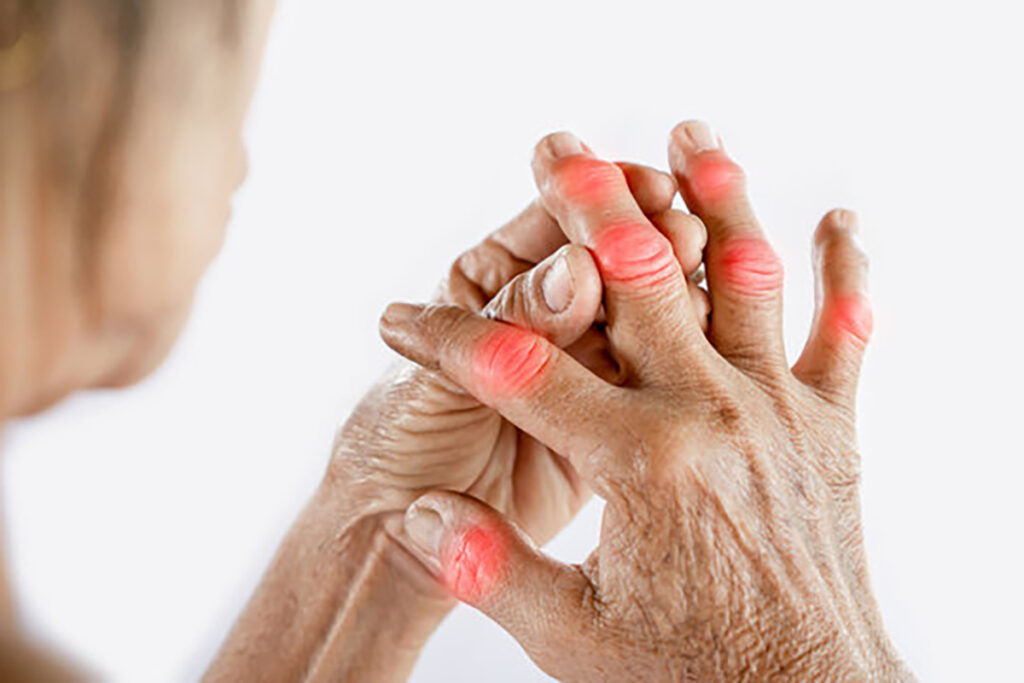Postpartum arthritis can be a significant concern for many new mothers, especially those with a pre-existing history of arthritis or other related conditions. This condition can cause noticeable discomfort and pain immediately after childbirth. Let’s explore why postpartum arthritis occurs and discover ways to find relief from the symptoms.
What Causes Postpartum Arthritis?
Postpartum arthritis often affects women who have a history of arthritis or are slightly overweight. It can also appear in women who experience other medical issues. The main reason for the development or intensification of arthritis symptoms after childbirth is linked to hormonal changes and shifts in the immune system.
During pregnancy, a woman’s immune system is naturally suppressed to prevent the body from rejecting the fetus. This immune suppression can temporarily reduce arthritis symptoms. However, after childbirth, the immune system becomes active again, which can lead to the resurgence of arthritis symptoms. Hormonal fluctuations following labor also play a role in increasing joint stiffness, pain, and inflammation. These changes can exacerbate existing conditions or trigger new joint issues.
Common Areas Affected by Postpartum Arthritis
Research published in the Journal Medical News Today has identified several key areas where women may experience arthritic pain after giving birth. The most commonly affected areas include:
- Knees: Due to the added stress of weight gain during pregnancy and the strain from labor, the knees are a frequent site of postpartum pain.
- Hips: Changes in body weight and pressure on the hips during pregnancy can lead to pain in the hip joints after childbirth.
- Legs: The additional weight and pressure from pregnancy can contribute to leg pain, which might persist or worsen postpartum.
- Fingers: Some women might also experience pain in their fingers and hands as a result of the physical demands of caring for a newborn.
- Other Joints: In rare cases, arthritis pain can spread to other joints such as the shoulders and elbows.
For some women, these symptoms may have begun during pregnancy and might continue or intensify after delivery.
How to Relieve Postpartum Arthritis Symptoms
Here are several methods that can help alleviate arthritis pain during the postpartum period:
1. Core Strengthening Exercises
Engaging in core strengthening exercises can be beneficial for joint health and mobility. While it’s important to start with gentle exercises and gradually increase intensity, focusing on core workouts helps support the muscles and joints affected by arthritis. Activities such as light stretching, pelvic tilts, and gentle yoga can be effective ways to improve core strength and joint stability.
2. Maintain a Healthy Diet
A well-balanced diet can support overall bone health and reduce arthritis symptoms. Foods rich in Vitamin D and Calcium are particularly helpful. Incorporate sources of these nutrients, such as leafy greens, dairy products, and fish, into your diet. It is also wise to avoid foods and beverages that can exacerbate arthritis, such as alcohol, coffee, and processed meats.
3. Use Hot and Cold Therapy
Applying heat or cold to affected areas can be a simple yet effective way to manage pain. Ice packs can help reduce swelling and numb the area, while heating pads can ease muscle tension and increase blood flow. Apply these treatments for about 15-20 minutes several times a day, depending on your symptoms.
4. Achieve and Maintain a Healthy Weight
Managing your weight is important for reducing joint stress. Even a modest reduction in weight can alleviate some of the strain on your joints. If you are struggling with excess weight, consider adopting a balanced diet and engaging in gentle physical activities to support weight loss efforts.
5. Stay Active
Even if you’re not ready for intense workouts, staying active is important. Gentle activities such as walking, light stretching, or even playing with your baby can keep you moving without overexerting yourself. Regular, moderate activity helps maintain joint function and can reduce pain.
When to Seek Medical Advice
If you find that your arthritis symptoms are worsening or are causing significant discomfort, it is important to seek medical advice. A healthcare professional can provide personalized treatment options, which may include physical therapy or medications to manage pain and inflammation. Additionally, they can perform tests to ensure there are no underlying issues contributing to your symptoms.
Managing Postpartum Arthritis: Key Strategies for Relief
Postpartum arthritis can be challenging, but understanding its causes and implementing effective management strategies can help alleviate symptoms. By focusing on gentle exercises, maintaining a nutritious diet, utilizing hot and cold therapy, managing your weight, and staying active, you can better manage arthritis during the postpartum period. If symptoms persist or worsen, consult with your healthcare provider for further support and treatment options.
This approach to managing postpartum arthritis helps new mothers navigate the complexities of joint pain and maintain their well-being during a significant life transition.
Conclusion: Always consult with your doctor or a healthcare professional before making significant dietary changes for Postpartum Arthritis. They can provide personalized guidance based on your medical history and current health status.
Note – If you have any health-related concerns, please call us at +91-9058577992 to receive free consultation from our experienced doctors. Thank you.
